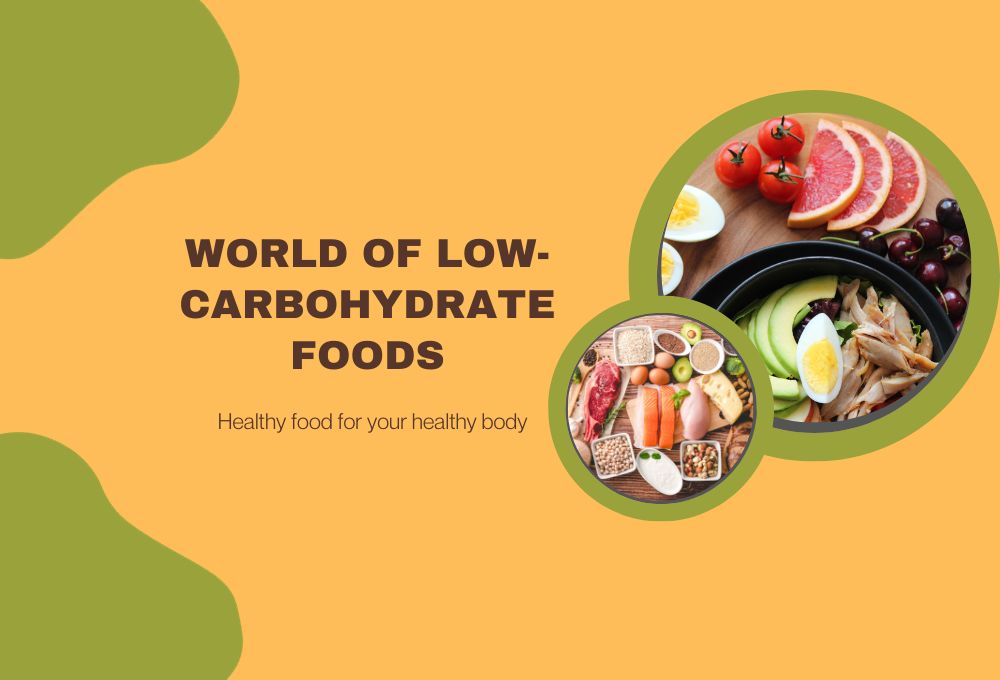
Eating Right Made Easy: Your Roadmap to a Balanced Diet
Your Roadmap to a Balanced Diet Maintaining a balanced diet is the cornerstone of a healthy lifestyle. However, in today’s fast-paced world, finding the time and information to make nutritious choices can be a daunting task. That’s where we come in. We understand the importance of eating right and want to guide you on a journey toward a balanced diet that’s both achievable and sustainable.
In this comprehensive guide, we’ll delve deep into the intricacies of a balanced diet, provide practical tips, and debunk common myths to help you outrank your competition in the world of nutrition.
The Basics of a Balanced Diet
Before we delve into the specifics, let’s establish what a balanced diet entails. At its core, it means consuming a variety of foods in the right proportions. This ensures you receive all the necessary nutrients for your body to function optimally. A balanced diet typically includes:
1. Proteins
Proteins are the building blocks of life. They aid in tissue repair and growth, making them an essential component of any diet. Incorporate lean meats, fish, poultry, eggs, and plant-based sources like beans and tofu to meet your protein needs.
2. Carbohydrates
Carbs provide your body with energy. Opt for complex carbohydrates like whole grains, fruits, and vegetables to maintain steady blood sugar levels and sustain your energy throughout the day.
3. Fats
Healthy fats, such as those found in avocados, nuts, and olive oil, are crucial for overall health. They support cell growth and protect organs.
4. Fiber
Fiber aids digestion and helps prevent digestive issues. Whole grains, vegetables, and fruits are excellent sources of dietary fibre.
5. Vitamins and Minerals
Your body needs a wide array of vitamins and minerals for various functions. Ensure you include plenty of fruits and vegetables in your diet to meet these requirements.
6. Hydration
Water is the unsung hero of any diet. Staying well-hydrated is essential for overall well-being. Aim to drink at least eight glasses of water per day.
The Importance of Portion Control
Eating right doesn’t just involve choosing the right foods. Portion control is equally vital. Overeating, even healthy foods, can lead to weight gain and health issues. To ensure you’re consuming the right portions, consider the following:
1. Mindful Eating
Pay attention to your body’s hunger and fullness cues. Eat when you’re hungry and stop when you’re satisfied.
2. Use Smaller Plates
Using smaller plates tricks your brain into thinking you’re eating more, helping with portion control.
3. Read Labels
Check food labels for serving sizes. This will help you understand how much you should eat.
Debunking Diet Myths
In the realm of nutrition, myths abound. To truly outrank your competitors, you need to distinguish fact from fiction.
1. Myth: All Fats Are Bad
Contrary to popular belief, not all fats are detrimental to your health. Healthy fats, like those found in avocados and nuts, are essential for your well-being.
2. Myth: Skipping Meals Helps You Lose Weight
Skipping meals can lead to overeating later in the day. It’s important to have regular, balanced meals to maintain a healthy weight.
3. Myth: Carbs Are the Enemy
Carbohydrates are not your foe. The key is to choose complex carbs over simple ones and consume them in moderation.
Practical Tips for a Balanced Diet
Achieving a balanced diet is not as daunting as it might seem. Here are some practical tips to help you on your journey:
1. Plan Your Meals
Planning your meals offers a plethora of benefits that can enhance your life in numerous ways. Here are some compelling reasons to embrace this practice:
Save Time-:
When you plan your meals, you save time in the long run. No more last-minute scrambles to figure out what to eat or rushing to the grocery store for forgotten ingredients.
Save Money-:
Meal planning can significantly reduce your food expenses. By buying in bulk and avoiding costly takeout or dining out, you can stretch your budget further.
Healthier Choices-:
By carefully selecting your ingredients and portions, you can make healthier meal choices. This is particularly beneficial if you’re trying to lose weight or maintain a balanced diet.
Reduce Food Waste-:
Meal planning allows you to buy only what you need and use ingredients before they go bad, thereby reducing food waste and contributing to a more sustainable lifestyle.
The Power of Routine-:
Establishing a meal planning routine helps create structure in your daily life. It offers a sense of predictability and eliminates the stress of deciding what to eat on the spot.
Improved Nutrition-:
Planning your meals enables you to ensure you’re getting the right balance of nutrients, vitamins, and minerals. It’s a proactive approach to a healthier, more balanced diet.
Getting Started with Meal Planning-:
Assess Your Goals-:
Before diving into meal planning, it’s essential to understand your goals. Are you aiming for weight loss, muscle gain, or simply better nutrition? Knowing your objectives will guide your meal-planning choices.
Choose Your Plan-:
There are various meal-planning methods to explore:
The Batch Cooking Method-:
This involves preparing larger quantities of food and portioning it out for future meals. It’s an excellent choice for those with a busy schedule.
The Weekly Menu Method-:
Planning your meals for the week ahead allows you to have a clear vision of what you’ll be eating and ensures variety in your diet.
The Dietary Restrictions Method-:
If you have specific dietary restrictions or preferences, such as vegetarian, vegan, or gluten-free, tailor your meal plan accordingly.
Create a Shopping List-:
Once you’ve decided on your meal planning method, it’s time to create a shopping list. Ensure you have all the necessary ingredients, taking into account portion sizes and the number of servings you’ll need.
Executing Your Meal Plan
Time-Saving Tips-:
Here are some time-saving strategies to make meal planning a breeze:
Prep in Advance-:
Spend a few hours on a designated day preparing ingredients like chopping vegetables, marinating meats, or cooking grains. This will save you valuable time during the week.
Use Leftovers Wisely-:
Don’t let leftovers go to waste. Repurpose them into new meals or freeze them for later use.
Balancing Nutrition-:
When planning your meals, focus on achieving a balanced diet. Ensure you incorporate a variety of food groups, including fruits, vegetables, lean proteins, whole grains, and healthy fats.
Portion Control-:
It’s easy to overeat if your portions are too large. Use measuring cups or a food scale to help you manage portion sizes effectively.
Staying on Track
Maintain Flexibility-:
While meal planning provides structure, it’s essential to remain flexible. Life can be unpredictable, and there will be days when your plan needs to adapt.
Track Your Progress-:
Keep a meal diary to monitor your meals, energy levels, and overall well-being. This will help you make adjustments to your meal plan as needed.
Seek Inspiration-:
Explore new recipes, cuisines, and cooking techniques to keep your meal planning exciting and prevent boredom.
2. Cook at Home
Cooking at home allows you to control ingredients and portion sizes.
3. Diversify Your Diet
Variety is key to a balanced diet. Try new foods and recipes to keep things interesting.
4. Consult a Professional
If you’re unsure about your dietary needs, consider consulting a registered dietitian or nutritionist.
The Roadmap to Success
In conclusion, a balanced diet is not only essential for your physical health but also plays a significant role in your overall well-being. By understanding the basics, practising portion control, debunking diet myths, and following practical tips, you can achieve a balanced diet that can be sustained in the long term.
Remember that everyone’s dietary needs are unique, so it’s essential to consult with a professional if you’re uncertain about your specific requirements.



